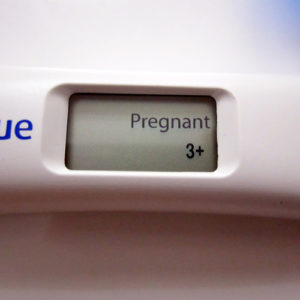Increase Your Chances of Falling Pregnant by Getting to Sleep on Time
Just how important is sleep when trying to get pregnant? A new study suggests that having a regular bedtime can help women fall pregnant. Researchers came to the conclusion that women who went to bed at roughly the same time every night were four times more likely to fall pregnant within a year than women with an erratic bedtime.
The findings of this study are in line with existing beliefs by fertility experts. Many believe that body clock might play a more important role in female fertility than previously suspected. Disruptive sleep patterns have already been successfully linked to several conditions and diseases.
Researchers in the United States followed the progress of 176 women. All of the women were actively trying to fall pregnant. The group was asked to monitor their activity levels by wearing a smartwatch throughout the period of the study.
Get To Bed On Time In Order To get Pregnant!
The results showed a fourfold increase in conception rates for those women who regularly went to bed at the same time. All these ladies went to bed within the same one-hour time-frame every night. This is compared to those whose bedtimes changed regularly. In addition, expanding the one-hour bedtime time-frame to a 90-minute time-frame still showed benefits, with women more than two times as likely to fall pregnant.
The study was conducted at St Louis’ Washington University. The findings could have far-reaching implications for women struggling to fall pregnant. It has already been well established that adequate levels of sleep are vitally important to regulate the human body’s healthy functioning. Now, this new study could prompt women trying to conceive to adopt regular sleep habits with a set bedtime.
A separate but similar study took place at the University of Miami. It found a 1.5 percent fall in testosterone levels with every hour of sleep lost per night.
You Need Sleep When Trying To Get Pregnant
Previous studies into sleep and conception back up the findings of the new report. For many years fertility experts have been warning that deficiency in sleep remains an issue. Research by scientists into infertility, due to lack of sleep, has been limited and still remains vital.
Even when you are asleep, your body is working and some functions are really hitting their stride! For example, the endocrine system is a vital part of the conception process and most of it’s work is done when you are asleep. For women, this includes secreting powerful fertility hormones. Those hormones are the ones that trigger ovulation. For men, they have a similar role in sperm production.
Fertility experts were already aware that key hormones would drop in a woman’s body if she was deprived of sleep.In particular, these hormones include, oestrogen, leptin, prolactin, progesterone, luteinizing hormone (LH) and follicle stimulating hormone (FSH). All of these hormones have a major or minor role in the conception process. Leptin, it perhaps the most important, as it controls ovulation. Peak Leptin production is between midnight and 4.00am.
And, as already alluded to, sleep issues are not just a problem for women. A study by the American Journal of Epidemiology discovered that its sleep-deprived, male participants produced 29 percent fewer sperm! Many of the sperm where also dysfunctional as they had mobility issues.
How Sleep Affects Fertility
Your circadian rhythm helps regulate many biological processes in your body, including reproduction. Disrupting your body’s natural sleep-wake cycle could therefore interfere with fertility.
Several studies have investigated the link between sleep and fertility problems in women:
- A 2021 study from the University of Southampton found that women with recurrent fertility issues slept around an hour less per night than fertile women. The study compared sleep patterns between women with conditions like recurrent miscarriage and recurrent implantation failure after IVF and women without known fertility problems.
- In a 2022 study from Washington University, women with regular bedtimes were much more likely to get pregnant within one year compared to women with irregular sleep schedules. Women going to bed within a 90-minute window each night were over twice as likely to conceive.
- Loads of studies have shown that lack of sleep can reduce levels of key reproductive hormones like oestrogen, progesterone, and leptin. These hormones help control ovulation and prepare the body for pregnancy.
Though more research is still needed, these studies suggest that insufficient or disrupted sleep could negatively impact fertility. Getting enough high-quality shut eye may help normalise hormone levels and increase your chances of conceiving.
How Much Sleep Do You Need?
Most adults need 7 to 9 hours of sleep per night. But your individual needs can vary based on factors like age, genetics, and lifestyle. The amount of sleep you need is the amount that allows you to wake up refreshed and function at your best throughout the day.
Listen to your body’s signals about how much rest it needs. If you have trouble falling asleep or frequently wake up during the night, you may not be getting adequate sleep. Sleeping too little or too much on a regular basis can both cause problems.
Aim to go to bed and wake up at consistent times each day. Having a regular sleep-wake schedule helps set your body’s internal clock so you can fall asleep and wake up more easily.
Tips for Better Sleep
If you’re struggling with sleep while trying to conceive, here are some tips that may help:
- Limit screen time before bed – The blue light from TV, phones and tablets can disrupt your circadian rhythm. Avoid screens for an hour or two before bedtime.
- Create a restful environment – Keep your bedroom cool, dark and quiet. Consider using blackout curtains or a sleep mask.
- Wind down before bed – Spend time relaxing with a book, soft music or light stretches to prepare your body for sleep.
- Avoid caffeine, alcohol and heavy meals before bed – These can interfere with sleep quality.
- Stick to a schedule – Go to bed and get up at the same time each day, even on weekends. This helps set your body clock.
- Exercise regularly – Getting exercise each day helps promote better sleep. But finish workouts at least a few hours before bedtime.
- Manage stress – Anxiety and rumination can make it hard to fall and stay asleep. Try relaxing activities like yoga, deep breathing and meditation. If stress is an ongoing issue, talk to your doctor.
Getting on a regular sleep schedule and optimising your sleep habits can help you get the rest your body needs for conception. Be patient with yourself while making changes. If you continue having sleep problems, discuss them with your doctor to identify any underlying issues.
The Bottom Line
Emerging research highlights the importance of sleep for reproductive health. Getting sufficient high-quality sleep on a consistent schedule may help normalise your hormone levels and increase your chances of getting pregnant. Aim for 7-9 hours per night and practice good sleep hygiene. Talk to your doctor if you continue struggling with sleep issues despite making lifestyle changes.
Photo credit; “Sleep” by Anthony Cunningham for Zoom Baby
Zoom Baby is a leading supplier of Pregnancy Tests and Ovulation Test Kits





